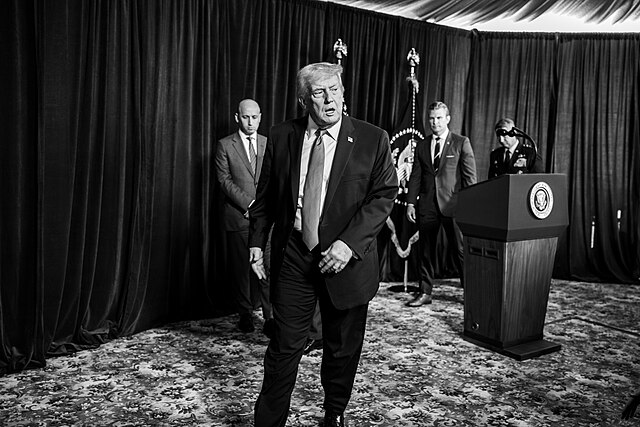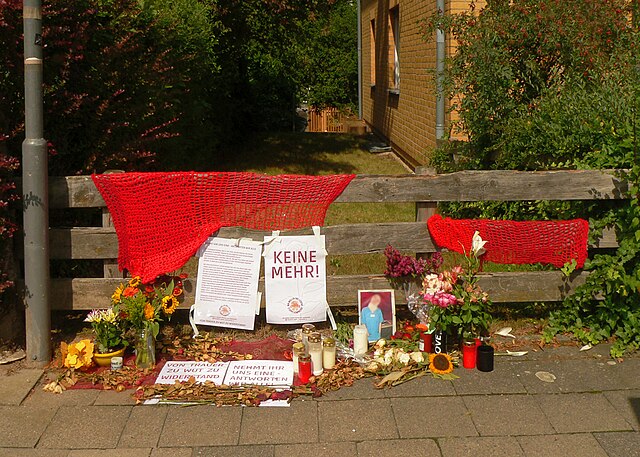Sarah Everard was a 33-year-old white woman who was walking home on the evening of 3 March, and who was last seen on CCTV around 9.30pm on a fairly well-lit road in Clapham, South London. She did not make it home that night. Her body was found a week later in a forest near Deal (in Kent, southeastern England), some 80km south of Britain’s capital. The main suspect in her case is a serving police officer, who has now been charged with her kidnapping and murder. Deal is where the police officer lives.
The grief that Sarah Everard’s family and friends must be feeling is unimaginable. Knowing that the person charged with her death is a serving police officer, who finished his shift just an hour before she was last seen, is enraging. Seeing that the narratives are being co-opted by white girl-boss feminism and the feminism that centres the innocence of white women, is a cause for despair.
A lot of the focus in recent days has been on the fact that Sarah Everard was just walking home. She called her boyfriend, she wore bright clothing, walked on a main road, and it wasn’t that late. She did all the right things, all the things that make you feel a little safer walking back home in the dark by yourself, but that you know are – ultimately – insufficient against someone determined to do you harm.
This is all true. No woman or gender non-conforming person should feel scared to walk home. The reason we do is based on experiences we all push to the back of our minds. Considering that a recent study has shown 97% of women aged 18-24 in the UK have been sexually harassed, and anecdotal evidence suggests that not only is this true, but also that many of us haven’t ever mentioned many of these incidents to other people, it is not difficult to draw the conclusion that we have accepted this as our lived reality and that we make daily allowances as to what kind of behaviour we see as not ‘a big deal’.
From an early age we are told to adjust our behaviour to mitigate the risk of harm we face simply existing in the world and many of us feel lucky that our experience was ‘only’ what it was. When cases such as this one blow-up in mainstream media, it makes us replay many of the things that have happened to us in the past, over and over, in our heads.
My initial reaction to Sarah Everard’s murder was fear. For myself, for the safety of those close to me who live just down the road from where Sarah was last seen, for the safety of all women and gender non-conforming people. And this is only about safety in public spaces – what about in our homes, where most gender-based violence takes place?
My next reaction was rage. The person charged with Sarah’s murder is a serving police officer, who, just a week earlier, was reported for indecent exposure in a South London McDonald’s. These two incidents are not unrelated. The fact that, unsurprisingly, no action was taken following the indecent exposure of a serving police officer, and a week later he was charged with the kidnapping and murder of a woman, is the focal point of this situation. Gender-based violence and state violence are one and the same. This police officer felt he was above the law – and that’s because he was.
Men, on the whole, believe they are above the law when it comes to gender-based violence. In the UK only 1.4% of all reported cases of rape end in conviction, effectively decriminalising it. Many victims do not even bother reporting, knowing that it will not lead anywhere, and may well lead to more violence directed at them, especially if their abuser is a person closely known (as most are). I will not be going into the debates around #notallmen here, but know that #notallmen has a similar stench to #alllivesmatter.
The biggest problem, as I see it, with the narratives that have dominated the past week is exemplified by what happened around the vigil on Clapham Common. A totally new initiative, Reclaim These Streets, was founded just to organise the vigil, planned to take place on the evening of Saturday 13 March. Wanting to do something and doing something about it, is commendable.
Here it is important to note that the Coronavirus Act in the UK effectively bans protests due to their threat to public health, and organisers get threatened with £10,000 fines. This is what happened to the Reclaim These Streets organisers and they called off the gathering on Clapham Common, and instead called for a doorstep vigil – asked for people to light candles on their doorsteps in memory of Sarah Everard.
An activist collective, Sisters Uncut, called for people to attend the South London vigil anyway [1]. Sisters Uncut is a collective led by women of colour, which has been active in the field of domestic and sexual violence for years. What happened at the vigil is now known to anybody who has seen the news – the royal PR machine went into overdrive by sending Kate Middleton to attend the vigil, secretly and yet without a mask (are royals immune to COVID?) so she would definitely be recognised, and the moment it got dark the police kettled those gathered, arrested four women, and manhandled many others. To those surprised the police did this: the police do not care about the photos because their power does not come from the public – it comes from the state.
What happened the next day is typical of many feminist debates. The most shared photo was of a white woman pinned to the ground by several police officers. ‘It was a vigil, not a protest’ and ‘it was just women and flowers’ made the rounds on social media. It was shocking to many white liberal feminists to see one of their own in this situation. This narrative is not only hugely hurtful to Black people and People of Colour, who have been experiencing and talking about police brutality for ever (it was just last summer where this same police force rammed horses into Black Lives Matter protesters in Central London), it also has hugely problematic undertones. It suggests that there is a ‘good’ way to protest and a ‘bad’ way to protest. The ‘good’ way is when protests are organised by white professional campaigners, who would have ensured it did not ‘come to this’, who would have got permission from the police, who would have made it all pretty and sanitised and instagrammable. The ‘bad’ way is a spontaneous protest organised by marginalised communities, where there are links made between the death of an individual and the system which not only allowed it to happen, but also benefitted from it happening. This, first of all, takes away from the fact that Black communities have organised vigils and other forms of remembrance for victims of state and gender-based violence, and paints movements such as BLM as ‘woke extremists’ and ‘riots’ – putting the onus of violence on those resisting and not on the state. Second of all, there is no difference between a vigil and a protest when a person died at the hands of an agent of the state.
Framing Sarah Everard’s death as one that was enabled by a patriarchal system is not taking away from the pain has caused. It does the opposite. The police work for the state, and they are tasked with upholding its values and ideology – which are the patriarchy, capitalism, and white supremacy (which are all sides of the same coin). They do this, systematically, by exerting violence on communities that resist the oppression they experience at the hand of these ideologies. This is why we say All Cops Are Bastards.
Taking it down to the narrative of the individual ‘rotten apple’ forgets that it is the system that empowered the perpetrator to do this. This is not just a ‘one-off’ – this is systemic. This is why the indecent exposure incident and the kidnapping and murder are related. It is the same system that empowers men to do things that start with cat-calling and not taking no for an answer, and in extreme cases ends with femicide.
It is, therefore, all the more disappointing (albeit not surprising) to see the Reclaim These Streets organisers giving interviews on mainstream media, not crediting Sisters Uncut with the task of organising and with having ensured the safety and legal support of attendees. What we are seeing instead is them sitting down with Cressida Dick, the head of the Met Police, and saying that it would be a disservice to make her resign since she is the first woman to hold the role. Girl-boss feminism at its finest.
What they are essentially also saying is that had they been allowed to organise the vigil as they planned, it would have been safe and the event would not have resulted in police brutality, as it would have just been a vigil, not a protest. They, the respectable professionals, would have done a better job than the rowdy (read: experienced) grassroots activists. On top of this, they have not publicly declared whether the now half a million pounds they raised would be going towards the fines of those arrested in Clapham, or where that money would be going at all. Where is the solidarity? Or is it only some women’s lives they care about?
Reports from those on the ground say that solidarity was very much present on the ground, both at Clapham Common, and a day later in Parliament Square. That this wasn’t just a white women’s protest and that it’s not a white women’s issue. Marginalised communities see this, despite the fact that the same media coverage and public outrage wasn’t afforded to Blessing Olusegun, who was found dead on a beach in East Sussex (southeastern England) last September, or Nicole Smallman and Bibaa Henry, who were found dead in a North London park last June. Blessing’s case was deemed ‘non-suspicious’ by police and dropped, and in the case of Nicole and Bibaa, eight police officers are currently under investigation for taking photos next to the sisters’ dead bodies and sharing them with their friends on WhatsApp. The state enacts violence both directly, through policy brutality and incarceration, but also through the systemic deprivation and dehumanisation of communities whose oppression upholds the system as it is, and such events show what low regard the state and its agents have for the lives of those from marginalised communitites.
The protests – led by Sisters Uncut – are continuing. They are currently focusing on the police and Home Secretary Priti Patel’s Police, Crime, Sentencing and Courts Bill (popularly called the Police Crackdown Bill) which was voted on in Westminster in the evening of 16 March. This is an extension to the curbing of the right to protest under the Coronavirus Act bill and it would effectively make demonstrations illegal. Protests that cause a ‘serious annoyance’ to ‘a section of the public’ could lead to ten years’ imprisonment.
The Labour Party leadership originally said they would abstain, but the protests put enough pressure on the party to ultimately vote against it. It still went through its second reading with a majority. The bill is not yet law as there are some more steps in the UK’s parliamentary procedure. Activist groups have declared the protests will continue. It should also be mentioned here that the Tory government shamelesslysuggested protecting women by placing undercover cops in nightclubs, and police officers continued to intimidate protesters during demonstrations outside parliament led by Sisters Uncut. This is not a battle that will be easily won.
It is not surprising that it took the death of a middle-class white woman to spark this sort of reaction. It is also not surprising that so soon afterwards there is a divide in opinions as to how to proceed and how to frame it. Sarah Everard’s murder lies at the meeting point of gender-based violence, state violence, intersectionality and the right to protest during a pandemic (and always). The answer should be obvious, but to many it isn’t: you do not ask for permission to protest, and the police is not our friend.
Read the Sisters Uncut response to Boris Johnson’s statement here.
Hanna Grześkiewicz is the joint speaker of the LINKE Berlin Internationals group
Footnote
1 There were also other vigils that happened in London and across the UK. Some were moved online, some were not, such as the North London vigil led by the Women’s Strike Assembly.




